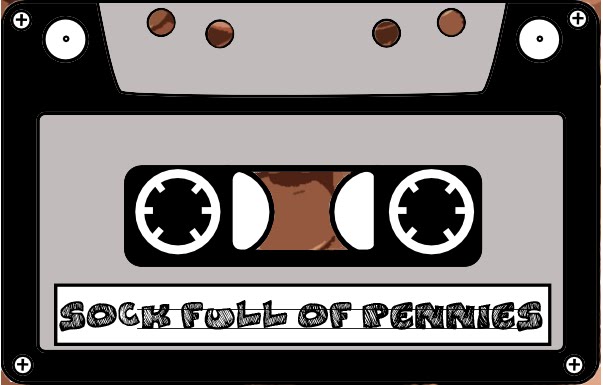When
I was fourteen years old, it seemed like everything was Nirvana, and Nirvana
was everything. With the Lights Out
had just hit shelves, catalyzing a furious interest in the band’s back catalog
that ran rampant through my friend group in high school. Burned copies of Nevermind and In Utero were passed around like a juicy piece of gossip;
however, it wasn’t until I browsed the local FYE that I ran into a copy of
their debut, Bleach, an album I just
could not understand as a child. But having recently felt its pull again, I
dove right in, this time arriving at a new appreciation for Nirvana’s gritty
and groaning first-impression.
Lots
of my favorite records tear into a run right off the gate, but it’s been a long
time since I’ve heard anything erupt quite like Bleach does. This record has almost more energy than it knows what
to do with: Krist Novoselic’s bass roars behind a guitar drenched in feedback
and overdrive, Chad Channing’s bass drum beats like a blacksmith’s hammer, and
Kurt Cobain yelps and growls with such force that his throat sounds like it’s
about to collapse. The band rages through slow and fast tunes alike, imbuing
the grinding beats of “Sifting” and “Paper Cuts” with the same visceral passion
as those in “Negative Creep” or “Downer.” Kurt’s rampant guitar tones conjure
up spirits similar to Black Sabbath, yet the band rocks with a ferocity oft
reserved for hardcore punk acts like Minor Threat. Nirvana manages to give
every ounce of strength and feeling they have to their music, forcing each song
through the speakers like a shotgun blast.
Though
the priority of this record’s sound is certainly energy, it is not all noise
and ire; the beginnings of the pop sensibility Kurt Cobain would be worshipped
for are apparent even on their debut. Though in a few short years Nirvana would
be considered the kings of grunge, when the band was writing Bleach, they were dealing with an
apparent pressure to conform to the Seattle sound that surrounded them.
The scene wanted heavy guitars and screeching vocals, and while Kurt did his
best to oblige, he could not keep his softer influences entirely absent; “Swap
Meet” and “School” both revolve around catchy vocal melodies, and “About a Girl” wholly embraces a pop angle, forgoing dissonance or insanity for gentle
vocals and tailored key changes.
Even
before the world was waiting for him to write “Smells Like Teen Spirit” over
and over, Kurt Cobain had a knack for blending the heavy and the melodic, and
“School” is an excellent example of this synthesis. Operating wholly on a
“less-is-more” ethic, the four chords and fifteen words that make up “School”
manage to create a piece both riveting and rocking. Chad Channing’s voracious
drumming guides the tune through dynamic changes, while Kurt’s guitar and
vocals battle for the spotlight, remaining brutal in the style of Bleach, yet catching the ear more than
enough to cause a craving. “School” is a prototype of the formula that would
soon drive Nirvana to success, a song incubating the emotions and attitudes that
Kurt would explore more heavily in later records.
Besides
forming a pop blueprint, “School” is indicative of the Bleach sound in other ways, specifically the sparse and general
lyrics that blanket the record. As Kurt admitted in interviews, “With Bleach, I didn’t give a flying fuck what the lyrics were about. Eighty percent were written the night before recording.”
This lackadaisical approach to writing leaves a lot to be desired from the
lyrics, especially direction. “Big Cheese” and “School” can be taken to address
the band’s experience with corporate influence, but random lines like “She is glue, how are you?” force the song to veer off into nonsensical
territory. Similarly, “Scoff” almost sounds like a mission statement, but how Kurt’s
demand of “gimme back my alcohol” adds weight to that statement is unclear.
Indeed, other than a penchant for fun little rhymes, “Sifting” fails to
communicate anything at all.
Although
lyrical content might have been “the least important subject” to Cobain, he
does manage on occasion to say something of value on Bleach, specifically on the theme of rural communities. The
nightmarish “Floyd the Barber” bastardizes America’s favorite small-town, but
in doing so, Cobain comments on the massive disparity that exists between TV’s
Mayberry and the reality of working-class life. Similarly, “Swap Meet” caricatures
two characters scraping out a brittle living by selling items at the flea
market, and from the bitter way they apparently avoid each other, their
existence is far from happy. Songs like these show Cobain as completely capable
with a pen in his hand, if only he chooses to apply it.
The
lyrics might be wanting for some love, but overall, Bleach is as loud, gritty, and honest as a debut record ought to
be. As Kurt puts it, Nirvana’s purpose was simply “to have fun, write songs,and play.” There is passion without pretension on this record, and for
Nirvana, that passion “comes before anything else.” Bleach shows a band just working to get their footing, pressing
their hearts onto vinyl and launching it into an uncertain future. Over ten
years since I first bought my copy, I can finally hear that truth, and it is
indeed a sweet sound.
Tunes to Check Out:
1) School

